Humanitarian Technology Session
The purpose of the Humanitarian Technology Panel is to exchange experiences and best practices in the deployment of appropriate technologies in underserved communities.
In-person sessions will take place at the Wyndham Hotel in Guatemala City.
Date: May 8th, 2024.

Julianna M. Pichardo
Humanitarian Activities & Sustainable Development Manager
IEEE Corporate Activities
USA
Julianna M. Pichardo
BIOGRAPHY:
Julianna Pichardo has a B.A. in Business Administration and Spanish from Messiah College. After college, she worked for over five years at Esperanza International, a microfinance nonprofit dedicated to poverty alleviation in the Dominican Republic. Julianna joined the Humanitarian Technologies team at IEEE in 2018 where she currently supports the Humanitarian Technologies Board’s programs to ensure smooth and consistent processes that lead to meaningful impact.
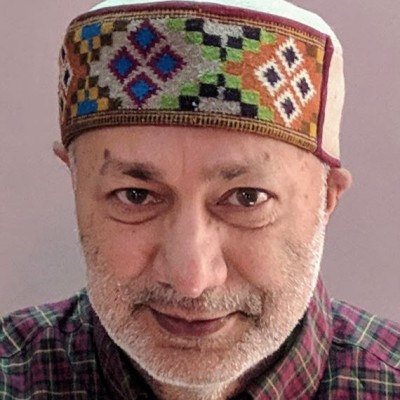
Rajan Kapur, PhD.
President, IEEE Smart Village.
USA
Rajan Kapur, PhD.
BIOGRAPHY:
Dr. Rajan Kapur started his career at Bell Labs. Since 1985 he has worked exclusively with start-ups, first on mixed signal micro-chip development in the Silicon Valley, and on liquid crystal on silicon micro-display systems in Colorado. In 2006, he transitioned to renewable energy and founded and sold a microinverter company. Now he runs a sustainability incubator in his garage, working with small dispersed teams on early stage projects, with participants from academia and the private sector. His current projects include air-conditioning with thermal storage, electric transportation in hill states in India, and working with IEEE Smart Village partners in Africa, the Americas and South Asia. He holds Electrical Engineering degrees from the Indian Institute of Technology, Kanpur; Rice University, Houston and the University of Texas at Austin.
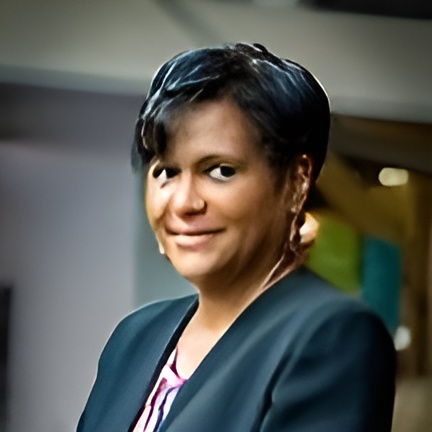
Monica LaBiche Brown, MSM
Founder and Executive Director
Africa Development Promise
Monica LaBiche Brown, MSM
BIOGRAPHY:
Monica is from Seychelles but spent her formative years living in Uganda. Living in both countries, she experienced first-hand the challenges that developing countries face. Monica is passionate about women’s economic empowerment and gender equality and recognizes that women in developing women are the key to ending extreme poverty. With extensive experience spanning twelve years at the World Bank, eight years at Water For People, and a decade with Africa Development Promise, an organization she founded, Monica is committed to elevating the status of rural women in Rwanda and Uganda, supporting their economic and livelihood aspirations. Her approach is rooted in leveraging local knowledge, fostering collaboration, promoting inclusivity, and upholding accountability.
Cold storage and Packhouse, Bugesera, Rwanda
Africa Development Promise’s (ADP) Cold storage and Packhouse in Rwanda, funded by IEEE Smart Village, is a transformative initiative driving economic growth and food security. The facility empowers KOTIMIR, an ADP-supported agricultural cooperative, to mitigate post-harvest losses, improve market access, and enhance agricultural resilience. This solar-powered facility utilizes Store it Cold technology, incorporating CoolBot to leverage the cooling capacity of a standard air conditioner. Initial success, demonstrated by Feed the Future’s Horticulture Innovation Labs, underscores its effectiveness. ADP not only provides infrastructure support but also invests in strengthening the cooperative’s institutional capacity through training in governance, business management, and technical skills.
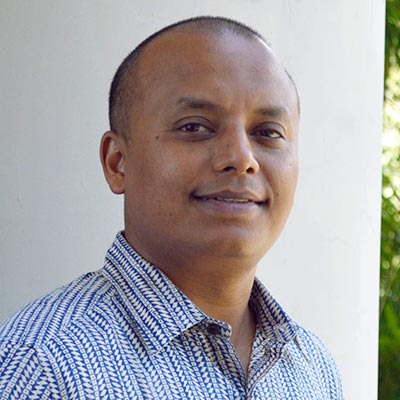
Ashok Das, PhD.
Founder CEO of SunMoksha.
Ashok Das, PhD.
BIOGRAPHY:
Dr. Ashok Das is the Founder CEO of SunMoksha. He is also the Co-chair of the North America Working Group of IEEE Smart Village Group and a committee member of the South Asia Working Group. Ashok works at the intersection of clean technologies, sustainable development and smart villages. Working closely with the underserved and disadvantaged communities, he developed state-of-the-art technologies and models to address the issues of sustainable socioeconomic development. His innovations and models have received several national and international awards and accolades. With his on the ground experience, he has developed a “Theory of Change” for sustainable socioeconomic development of smart villages. Prior to SunMoksha, Ashok worked in the semiconductor equipment industry for over a decade. Ashok received his B.Tech. from IIT Kanpur and Ph.D. from Univ. of Southern California, Los Angeles
Solar Smart Irrigation, Kudagaon, India
SunMoksha has developed microgrid and smart irrigation technologies to address the challenges of access to energy for productive use, and deployed these technologies in several off-grid villages in the state of Odisha, India. The talk will highlight some of these deployments and the lessons learned thereof. Of special mention would be SunMoksha’s model of development and theory of change that integrates its stakeholders into the operations, maintenance, and long-term sustainability of the interventions. The impact of these interventions has not only brought people out of darkness, but equally impacted the incomes of the farmers and village microentrepreneurs. These villages have also seen reverse migration of its citizens back to the village, a much-desired goal of smart villages.
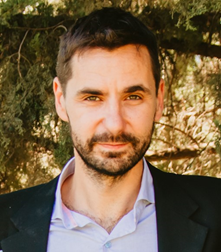
Guillermo Catuogno, PhD.
Universidad Nacional Mayor de San Luis (UNSL) and CONICET.
Argentina
Guillermo Catuogno, PhD.
BIOGRAPHY:
Guillermo Catuogno is a Doctor in Engineering, a research professor at the Universidad Nacional Mayor de San Luis (UNSL) and CONICET. He is director of the Laboratory of Appropriate Technologies (LabTA) which is dedicated to research and technology transfer for human and sustainable development. He has led more than 20 rural electrification projects in vulnerable communities. At IEEE he is a Senior Member and has been president of Joint Chapter #1 of the Argentine Section in 2019-2020. He has also been actively involved in societies such as IEEE HAC & SIGHT and Smart Village.

Juano Chalbaud
Argentina
Juano Chalbaud
BIOGRAPHY:
Juano Chalbaud works to generate conditions and opportunities that allow people, who are born and raised in rural areas, to carry out their life project in their place of origin. In 2014, he founded Monte Adentro, which aims to achieve comprehensive and community development in rural areas of northern Chaco around Tres Isletas, Castelli, Pampa del Indio, Quitilipi and Saénz Peña, which are located between 25 and 60 km. of the nearest urban population.
Electrification to Combat Deforestation, Chaco, Argentina
This initiative by Monte Adentro provides access to electricity and water from a solar energy source to families and communities in the Chaco Forest. It introduces clean energy and water, making sustainable living possible in a remote community in harmony with nature. This project is based on the installation of solar microgrids in non-electrified villages to support household and community services, as well as to power a water extraction and distribution system for three rural communities. The project will provide water services to 100 homes, of which 34 homes will receive electricity services, estimated at 500 people. Users will pay for services based on consumption, and the systems will be operated and maintained by a partnership between Monte Adentro and a local solar photovoltaic cooperative. The main results are to improve the living conditions of households, strengthen food security and agriculture, and create professional opportunities through Productive Uses of new services.

Edward A. Rezek, PhD.
Senior Vice President, Chair IEEE Smart Village Development Committee
Edward A. Rezek, PhD.
BIOGRAPHY:
Edward A. Rezek received a BS degree in Electrical Engineering and an AB degree in Physics from Washington University in St. Louis, MO in 1976; he received his MS and PhD degrees in Electrical Engineering from the University of Illinois, Urbana-Champaign, IL in 1977 and 1980. He retired from Northrop Grumman Space Technology (formerly TRW Space & Electronics Group), an entity specializing in electronics development for US Government and commercial applications, in 2015 after 35 years of service. His work experience has ranged from basic R&D to manufacturing and has covered the spectrum from advanced technology development for US Government space applications to manufacturing low cost components for commercial applications. He has received 19 patents and has >50 publications in refereed journals. He is the 1993 recipient of the TRW Chairman’s Award for Innovation and the 2006 recipient of the Northrop Grumman Distinguished Innovator Award. He is an IEEE Life Fellow.
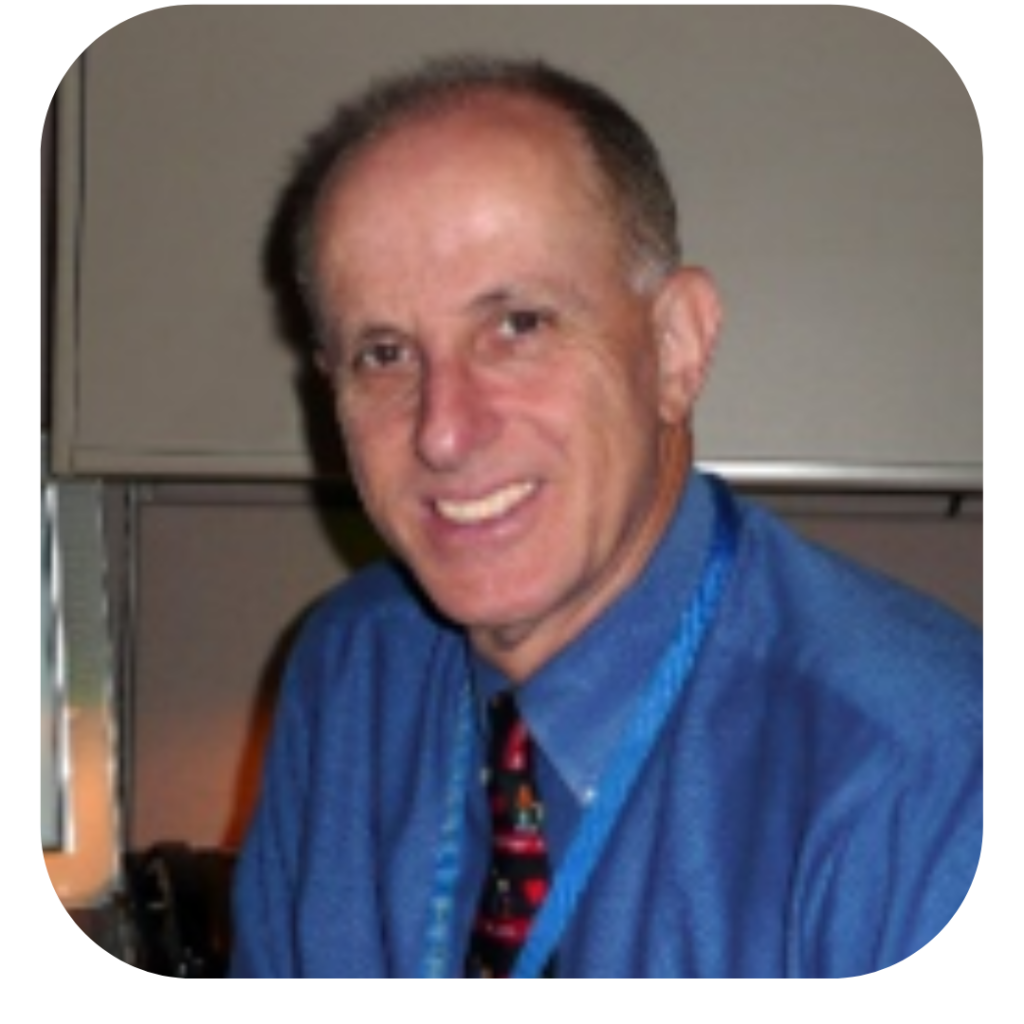
Luis Kun, PhD.
FAIMBE, Life Fellow IEEE, FIAMBE, FIUPESM
Luis Kun, PhD.
BIOGRAPHY:
Dr. Kun graduated from the Merchant Marine Academy in Uruguay and holds a BSEE; MSEE and Ph.D. in BME from UCLA. He is a Distinguished Professor Emeritus of National Security Affairs (CHDS) and was a Professor of Homeland Security at the National Defense University (2003-2015). A (Lifetime) Fellow of the IEEE, the American Institute for Medical and Biological Engineering, the International Academy of Medical and Biological Engineering, and the International Union for Physical and Engineering Sciences in Medicine. He was the founding Editor in Chief of Springer’s Journal of Health and Technology 2010-2020. He spent 14 years at IBM and later as Director of Medical Systems Technology at Cedars Sinai Medical Center. As Senior IT Advisor to AHCPR he formulated the IT vision and was the lead staff for High Performance Computers and Communications program and Telehealth. In July 1997, as an invited speaker to the White House, he was primarily responsible for the first Telemedicine Homecare Legislation signed by President Clinton, in August 1997. While a Distinguished Fellow at the CDC, as Acting Chief IT Officer for the National Immunization Program he formulated their IT vision on 10/2000. Kun received many awards including: AIMBE’s first-ever Fellow Advocate Award in 2009; IEEE-USA Citation of Honor Award, “For exemplary contributions in the inception and implementation of a health care IT vision in the US.” 2011 Golden Core Award by the IEEE Computers. Named: “Profesor Honoris Causa” by Favaloro University, (2009); “Distinguished Visitor” by the City of Puebla, (Mexico 2013). He is/was an EEE Distinguished Lecturer for the Computer Society, Engineering in Medicine and Biology Society and Chairman for SSIT’s DL Program. Kun is an Honorary Professor of the Electrical Engineering Dept. at the School of Engineering of the University (UDELAR) in Montevideo, Uruguay. He received the Medal of Merit in 2016 in Mexico from the National Unit of Engineering Associations. He was named Visiting Professor by the National Technological University of Buenos Aires, Argentina, November 2017.
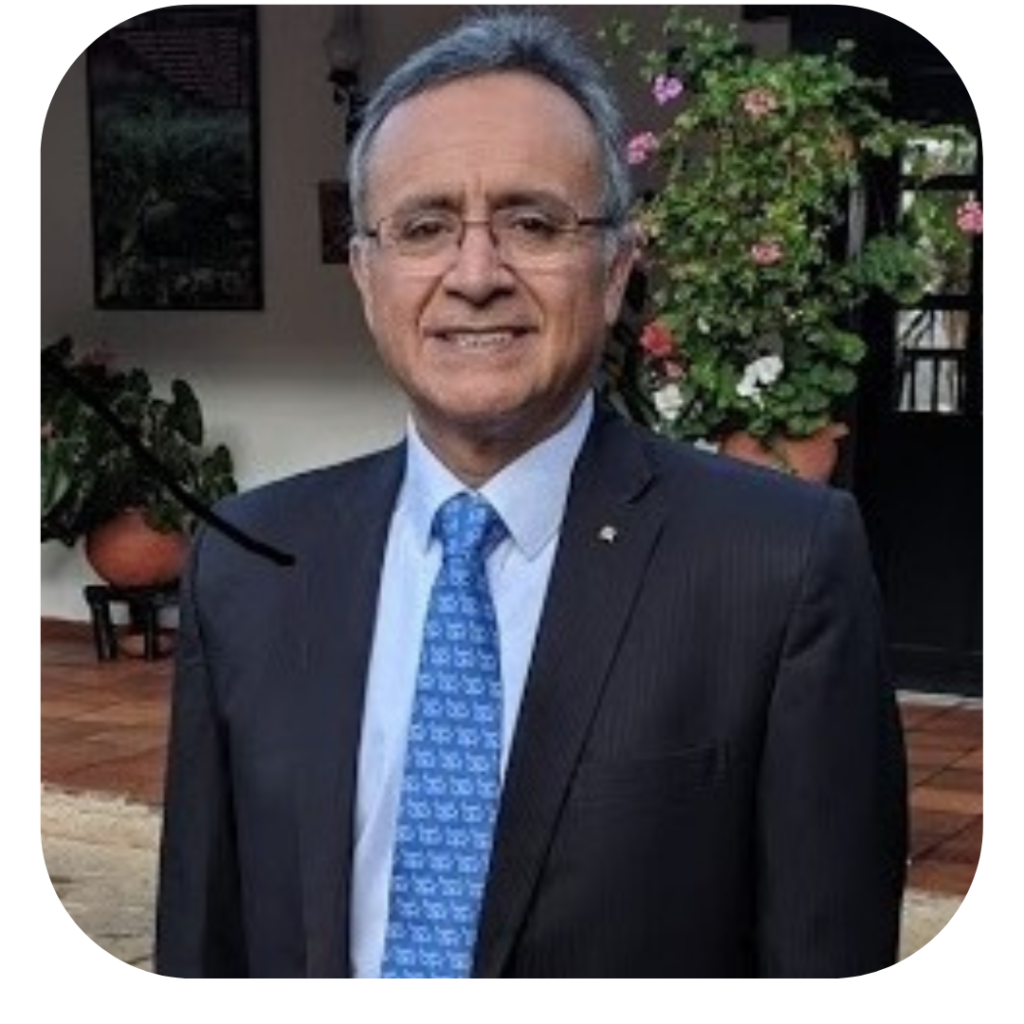
Fernando Guarín, PhD.
IEEE Fellow
Senior Past President Electron Devices Society EDS
Fernando Guarín, PhD.
BIOGRAPHY:
PhD. Fernando Guarin retired in July 2022 as a Distinguished Member of Technical Staff at Global Foundries in East Fishkill New York where he led the reliability team responsible for the qualification of 5G technologies. In 2015 he retired from IBM’s Semiconductor Division after 27 years with the Senior Member of Technical Staff title. He earned his BSEE from the “Pontificia Universidad Javeriana”, in Bogotá, Colombia, the M.S.E.E. degree from the University of Arizona, and the Ph.D. in Electrical Engineering from Columbia University, NY. He has worked in microelectronic reliability for over 40 years.
From 1980 until 1988 he worked in the Military and Aerospace Operations division of National Semiconductor Corporation. In 1988 he joined IBM’s microelectronics division where he worked in the reliability physics and modeling of Advanced Bipolar, CMOS and Silicon Germanium BiCMOS technologies. Most recently he was the leader of the team qualifying GlobalFoundries RF 5G technology offerings.
Dr. Guarín is an IEEE Fellow, Distinguished Lecturer for the IEEE Electron Device Society (EDS), where he has served in many capacities including; member of the IEEE’s EDS Board of Governors, Chair of the EDS Education Committee, Secretary for EDS. He was the EDS President 2018-2019.

Edmundo Gutiérrez, PhD.
General Director of the National Institute of Astrophysics, Optics and Electronics (INAOE) in Puebla, Mexico. Prof. Gutiérrez is an IEEE Fellow.
Mexico
Edmundo Gutiérrez, PhD.
BIOGRAPHY:
Dr. Edmundo A. Gutiérrez-D. received the PhD from the Catholic University of Leuven, Belgium in 1993, with the thesis entitled “Electrical performance of submicron CMOS technologies from 300 K down to 4.2K”. From 1988 to 1993 was a research assistant at the Interuniversity Microelectronics Center (IMEC) in Leuven, Belgium. In 1993 joined as a researcher the Department of Electronics of INAOE. In 1996 spent one year as invited Professor at the Simon Fraser University in Vancouver, Canada. In 1996 he also spent two months at the University of Sao Paulo, Brazil as a Summer PhD lecturer. From 1999 to 2000 was appointed Head of the INAOE Department of Electronics. From 2000 to 2002 spent two years as Design Manager of the Motorola Mexico Center for Semiconductor Technology in Puebla City. In 2002 he was also invited Professor at the Technical University of Vienna, Austria. From 2002 to 2005 rejoined INAOE as Professor of the Department of Electronics. From 2005 to 2007 was the Research Manager of the Intel Systems Research Center Mexico in Guadalajara City.
Prof. Gutiérrez is author of the book “Low Temperature Electronics, Physics, Devices, Circuits and Applications” (Academic Press, 2000), and the book “Nano-Scaled Semiconductor Devices, Physics, Modelling, Characterisation, and Societal Impact” (IET Press, 2016). He has supervised 4 M.Sc. and 15 PhD theses and has published more than 140 scientific papers and conferences in the field of physics of semiconductor materials and devices, including MOS transistors, temperature, optical, and magnetic sensors. He is Editor-In-Chief of the IEEE Transactions on Devices and Materials Reliability journal.
Currently Prof. Gutierrez is the General Director of the National Institute of Astrophysics, Optics and Electronics (INAOE) in Puebla, Mexico. Prof. Gutiérrez is an IEEE Fellow.
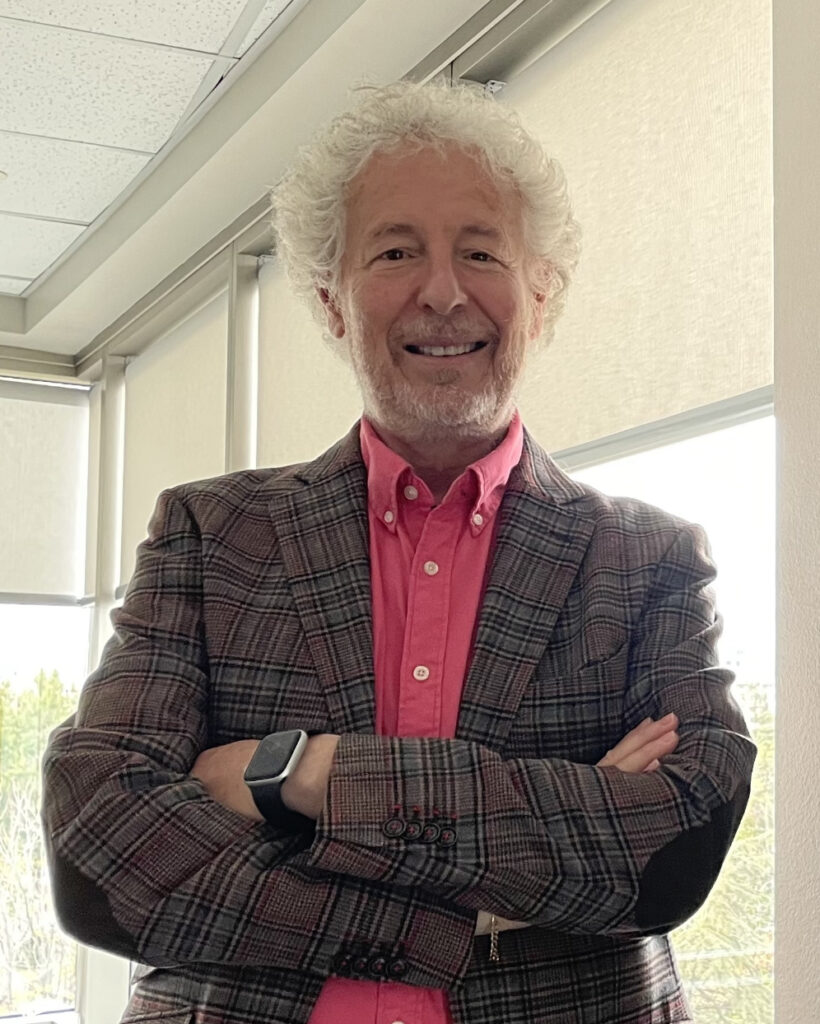
Victor Grimblatt, PhD.
R&D Group Director and General Manager,
Latin America Executive Sponsor,
Synopsys Chile R&D Center.
Victor Grimblatt, PhD.
BIOGRAPHY:
Victor Grimblatt has an engineering diploma in microelectronics from Institut Nationale Polytechnique de Grenoble (INPG – France) and an electronic engineering diploma from Universidad Tecnica Federico Santa Maria (Chile). He got his PhD on Electronics in 2021 from University of Bordeaux. He is currently R&D Group Director and General Manager of Synopsys Chile.
He has published several papers in IoT, EDA, Smart Agriculture and embedded systems development. Since 2012 he is chair of the IEEE Chilean chapter of the CASS. He has been part of several conferences TCP (ISCAS, ICECS, LASCAS) and Steering Committees. He is member of the IEEE CASS Board of
Governors for the period 2021 – 2023. He founded the Electronics for Agrifood SIG at CASS and chairs it. He was Chair of LASCAS Steering Committee from 2018 to 2022. He is CASS representative at the IEEE Climate Change TAB.
He was President of the Chilean Electronic and Electrical Industry Association (AIE) from 2017 to 2021.
From 2006 to 2008 he was member of the “Chilean Offshoring Committee” organized by the Minister of Economy of Chile.
In 2010 he was awarded as “Innovator of the Year in Services Export”. In 2022 he was awarded as “IEEE/AIE Best Engineer” in Chile. In 2023 he was awarded as IEEE R9 Outstanding Engineer”
Victor’s research areas are EDA (Electronic Design Automation), Climate Change, and Smart Agriculture